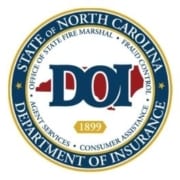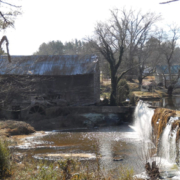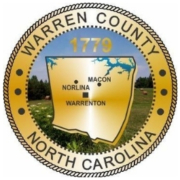VGCC’s 38th Annual Golf Tournament May 9-10; Register Now!
Registration is underway for the 38th annual Vance-Granville Community College golf tournament. Golfers interested in signing up to play need to swing into action before the April 15 deadline.
The VGCC Foundation Golf Tournament is scheduled for Monday and Tuesday, May 9-10, at the Henderson Country Club. Gupton Services, Inc. of Henderson will serve as the event’s presenting sponsor.
The tournament is a primary fundraiser for the VGCC Foundation, according to a press statement from VGCC’s Jerry Edmonds III, vice president of Workforce & Community Engagement.
All proceeds from the tournament are used to fund student scholarships and to support the mission of the college.
The golf tournament provides resources for VGCC’s efforts to remove barriers to education as it enhances and expands ways to address need-based aid for students and promote equitable outcomes for all learners, said Tanya Weary, executive director of the VGCC Foundation.
But the tournament also provides an opportunity for golfers and non-golfers alike to come together and demonstrate their support of VGCC and its impact on the broader community.
VGCC President Dr. Rachel Desmarais said she welcomes the opportunity to interact with all those who come out to play or watch. “We look forward to fellowshipping with our golf friends and thank you for your support of the VGCC mission,” Desmarais said.
The golf tournament will be held over two afternoons. Golfers who want to register in teams are asked to do so on the event’s website https://www.vgcc.edu/golf. Entry fee includes lunch, a golfer swag bag and a cookout at the end of each day.
There also are sponsorship opportunities available for businesses looking to promote their brand and support a worthy cause. Donations may be made via the event website or by emailing foundation@vgcc.edu.
Presenting sponsor Gupton Services is a local HVAC, roofing and building automation systems company that traces its origins back to 1921, when C.P. Tanner established a sheet metal-working plant in Henderson. Tanner Roofing became Owen Gupton Roofing and in 2019, Henderson native Greg Etheridge became its owner and president.
“As a local small business, we are happy to take a leadership role in the community and to support Vance-Granville Community College,” Etheridge said. “If you look at the research, the benefits of postsecondary education and skills training to both the individual and our community are enormous. The VGCC Foundation helps make education affordable and accessible to this region, and we must encourage that, in order to promote economic mobility and job security for our citizens.”
VGCC continues to be a source of economic growth because it provides an educated and skilled workforce that improves the quality of life for individual students and the community. Careers in HVAC, electronics engineering, mechatronics, welding and auto mechanics are just a few areas in high demand.
Whether just entering the job market or making a career change, VGCC helps students along their career paths as they develop the skills needed to fill jobs in high-demand areas.










